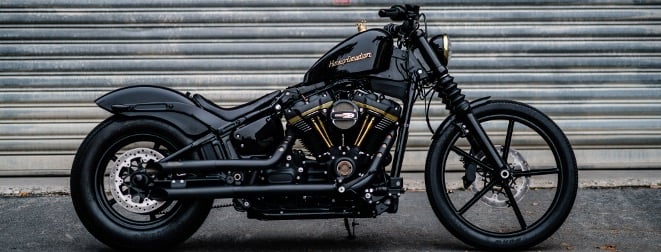
The road back from the COVID-19 pandemic hasn’t been easy for Harley-Davidson. Although the company shipped more than 194,000 motorcycles globally last year, it failed to meet its growth targets. Now the firm is facing legal troubles, too.
This past August, plaintiffs filed “right-to-repair” class action lawsuits against the firm in Wisconsin and California. Then, on November 3, plaintiffs filed yet another federal class action lawsuit against Harley-Davidson in Chicago.
The Chicago lawsuit alleges the company used its warranty to force Harley owners to use Harley parts instead of “quality aftermarket parts available for its motorcycles.” Doing so, the suit alleges, violates state and federal antitrust laws.
Specifically, the complaint accuses Harley Davidson of violating the Magnuson-Moss Warranty Act by using its “monopoly power in the large, roadgoing American bike market (and specifically the manufacturer’s warranty bundled with the new bike) to coerce customers not to purchase Compatible Parts from its competitors.” The complaint alleges that up until September 2022 Harley wrongfully tied its warranty to its OEM parts. It did so “by requiring customers who bought its bikes to only use Harley-Davidson’s Compatible Parts – or else risk voiding the warranty.”
This purportedly allowed the company – which generates approximately 15 percent of its annual revenue from parts – to charge more for its parts than it would have had its warranties not required the use of OEM parts. The suit alleges that the terms of the warranty deprived Harley riders of access to the full range of aftermarket parts in the market. Harley owners with bikes under warranty were foreclosed from the vast selection of parts because they risked losing warranty coverage, the complaint alleges.
Jacqueline and Robert Assise, plaintiffs in the Chicago lawsuit, bought a new 2019 Harley-Davidson Tri-Glide, and purchased Harley-Davidson compatible parts on numerous occasion for the next two years so as not to void their warranty. The cost of parts totaled $2,868.52.
The complaint claims the company’s conduct injured competition in the parts market. “The injury to competition has caused injury to its competitors, as well as antitrust price injury for its independent dealers – injury that is then passed on, all or in part, to the ridership in the form of anti-competitive pricing. Harley bike owners have paid higher prices for parts because of the tying, which has also impermissibly limited competitive choice for the riders,” the complaint states.
FTC Approves Final Order Against Harley-Davidson and Other Manufacturers
Back in June, the Federal Trade Commission (FTC) issued an administrative complaint ordering Harley-Davidson to refrain from further violating of the Magnuson Moss Warranty Act. The FTC ordered the firm to add specific language to its warranties to the effect that using unaffiliated repair shops or third-party parts would not void coverage. The FTC order also requires Harley-Davidson to “inform[…] customers that their warranties will remain in effect even if they buy aftermarket parts or patronize independent repairers.” On October 27 the FTC approved the final order against Harley-Davidson, as well as similar orders against grill maker Weber-Stephen Products, and the manufacturer of Westinghouse outdoor power equipment, MWE Investments, for illegally restricting customers’ right to repair their purchased products.
However, as the complaint notes, the FTC cannot recoup the overpayments for parts paid by affected Harley owners. Accordingly, the Chicago lawsuit was filed on behalf of a class of customers similarly situated to the Assises who owned a Harley under factory warranty and purchased compatible after August 1, 2018. The suit seeks injunctive relief, damages, attorneys’ fees, and interest.
The case is Assise, et al. v. Harley-Davidson Inc. (Case No. 1:22-cv-06068 N.D. Ill, filed Nov. 3, 2022).
Edited by Tom Hagy for MoginRubin LLP.







